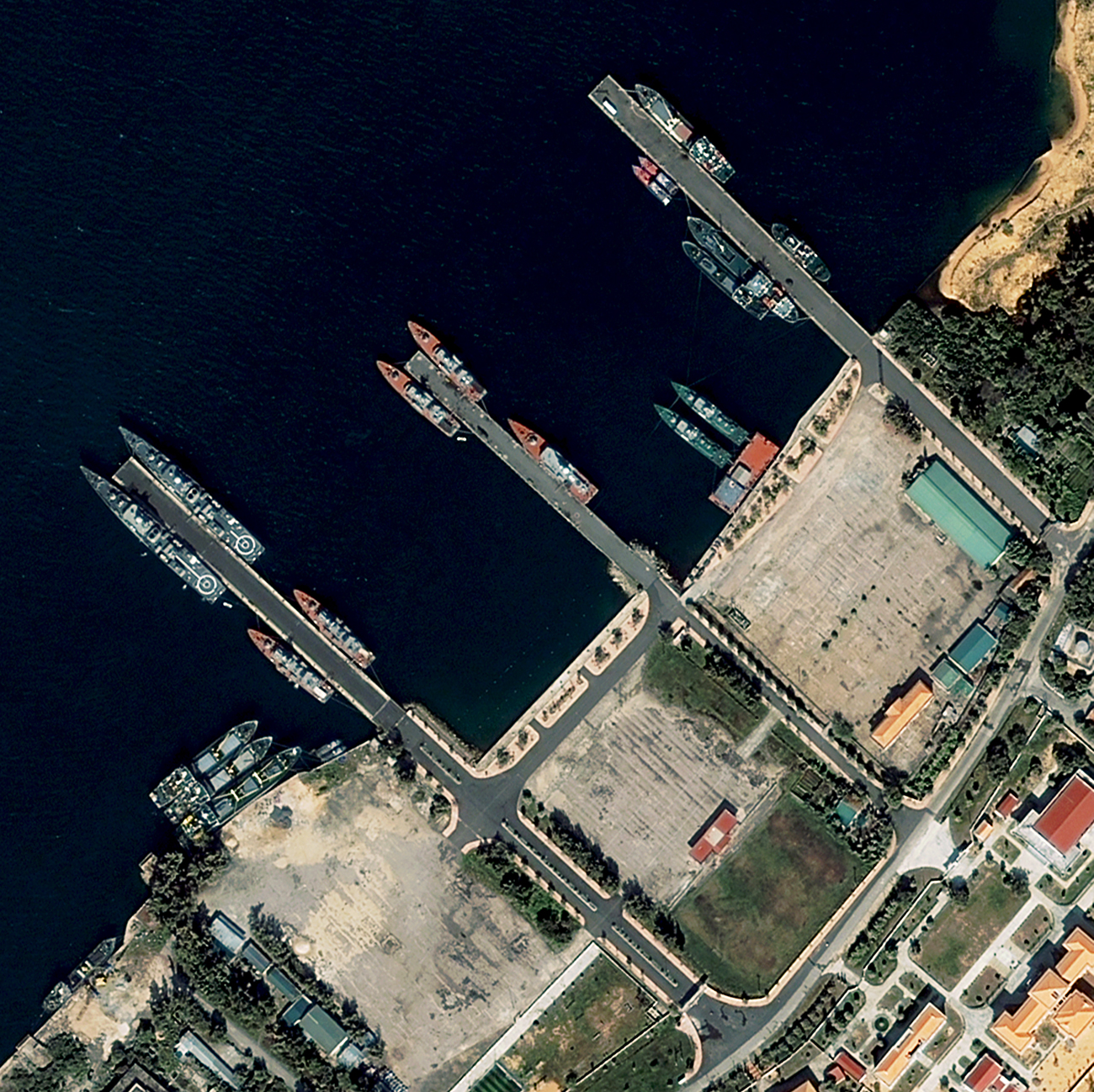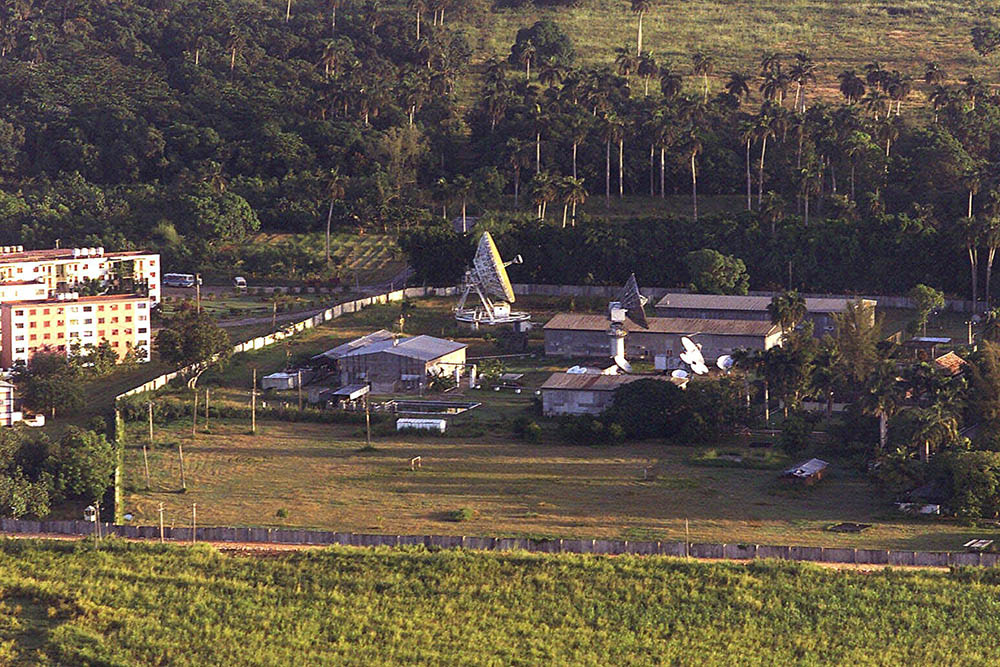
Cam Ranh Bay Naval Base, Vietnam.
Getty ImagesThe Russian Defense Ministry is considering the question of renewing Russia's presence in the bases in Cuba and Vietnam, according to Deputy Defense Minister Nikolai Pankov, who alluded to the issue during his speech at the State Duma on Oct. 7.
"We are working on it. We see this problem," said Pankov, responding to a parliamentarian's question about whether or not the ministry is working in this direction.
For now the issue of Russia's armed forces being present on a permanent basis at the radio-electronic center in Cuba’s Lourdes and Vietnam’s Cam Ranh Bay has not been decided officially. However, Russia's expert community is actively analyzing the suitability of the bases and their possible purpose.
"There was a radio-electronics intelligence center in Cuba. I think it should be reopened," said Reserve Lieutenant General Yevgeny Buzhinsky, council chairman at the PIR Center (Center for Political Research), an NGO that studies issues related to global security. In his view, it was a mistake to halt operations at the Russian radio-electronics intelligence center, which operated in Cuba from 1967 to 2002.
 The radio intelligence center at Lourdes began operating in 1967, first under the Soviet Union, then Russia, and continued functioning until 2001. Source: AFP/EastNews
The radio intelligence center at Lourdes began operating in 1967, first under the Soviet Union, then Russia, and continued functioning until 2001. Source: AFP/EastNews
He added that the U.S. has maintained its radio-electronic intelligence facilities on the Mediterranean coast in Turkey: "Radio-electronic reconnaissance resources are always useful [because] technologies change and things are [always] perfected."
Other experts, however, do not believe that renewing the Russian presence in Cuba is a necessary step in the current military-political conditions.
"There is no military-strategic sense in establishing Russian military bases in Cuba. Such discussions are aimed at stirring the interest of the U.S., at complementing NATO's growing activity in Europe," said Maxim Starchak, scientific collaborator at Queen's University's Center for International and Defense Policy (Canada).
In Starchak's opinion, the Kremlin may use the talks of renewing its presence on the island as a way to show Washington "that every new countermove will only instigate a response, meaning that negotiations are necessary."
At the same time, none of the experts interviewed by RBTH believes that Moscow's potential decision to renew Russia's presence on Cuba will engender a repeat of the Cuban Missile Crisis of 1962 since the Kremlin is unlikely to be thinking of deploying combat-ready troops or any type of missiles to the base in Lourdes.
If the Defense Ministry is indeed considering the issue of returning Russian naval forces to the port of Cam Ranh in Vietnam, said Buzhinsky, most likely it concerns reviewing the current conditions in which the Russian ships are docked at the port, since today Russian vessels already refuel there.
"The [new] agreement is mostly nuances: the kind of ships that can enter, their tonnage, if they can enter with armament. I think it just involves giving juridical form to the agreements already reached," he explained.
In Buzhinsky's view, the point on Russian ships' material-technical maintenance in Vietnam is necessary for Russia because it wants to strengthen its naval presence in the world's oceans.
The permanent stationing of Russian ships in Southern Asia, without the need to spend time and resources to travel the great distances from any Russian port to the Cam Ranh Base, will significantly strengthen the Russian navy's position in the world’s oceans, said Viktor Litovkin, a military observer at the TASS news agency.
However, many experts believe that Russia is not considering a permanent presence in Vietnam. According to Starchak, the base in Cam Ranh may serve as a temporary point for Russia's strategic aviation and submarines, which would then enter areas of possible drills in Asia, as well as for reconnaissance purposes.
"Russia doesn’t have the necessary military-naval resources for a permanent presence outside its territorial waters. So the base in Cam Ranh will be used for the technical maintenance of Russia's air force and navy in the regions close to Russian borders, as well as for supporting combat preparation exercises," said Litovkin.
However, the increased activity of the Russian navy in Southern Asia will most likely raise concerns in the U.S.
The possible expansion of the Russian naval presence in the Cam Ranh port in Vietnam and consequently the permanent presence of Russian military forces in this region represents a certain threat to the U.S. naval base in Guam, said Michael Kofman, a fellow at the Kennan Institute of the Wilson Center specializing in Russian military analysis.
In 2015 the U.S. State Department asked the Vietnamese government to cancel Russia's right to have its strategic bombers refuel at the Cam Ranh Base because of allegedly "provocative" Russian aviation flights near the U.S. base in Guam.
However, the Vietnamese government did not change its policy and the republic's ambassador to Russia said that the country was ready to continue accepting and servicing Russian ships at the Cam Ranh Base if this practice was not aimed at harming third countries.
All rights reserved by Rossiyskaya Gazeta.
Subscribe
to our newsletter!
Get the week's best stories straight to your inbox